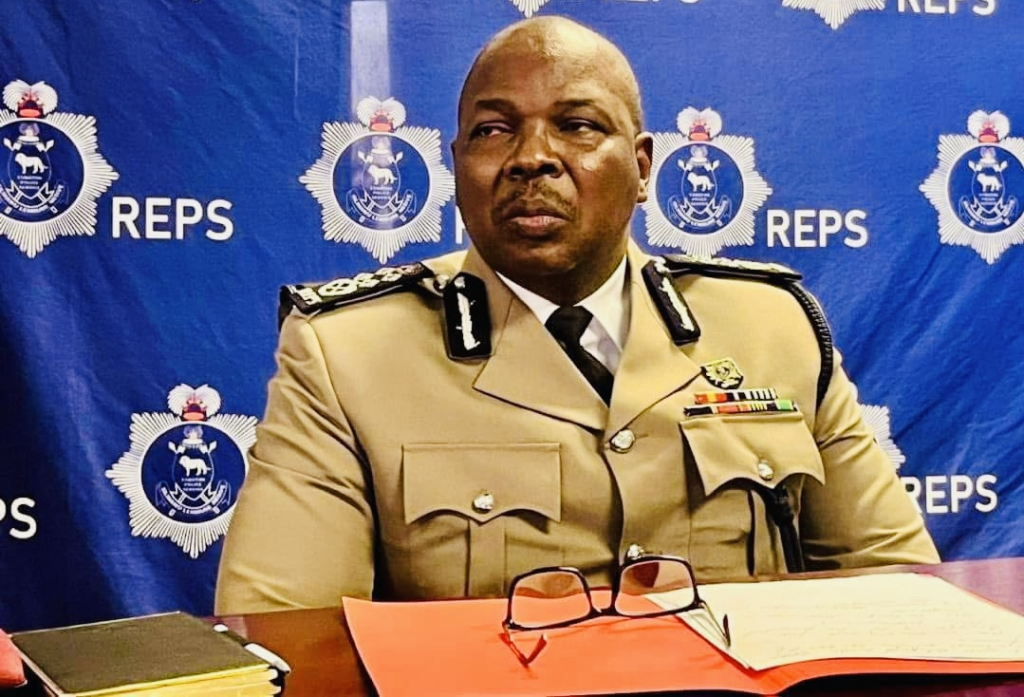Eswatini Police Staff Association Accuses National Commissioner of Intimidating Chief Justice in Salary Increment Case

The Executive Committee of the Royal Eswatini Police Staff Association (REPOSA) has raised serious allegations against National Commissioner of Police Vusi Manoma Masango, accusing him of attempting to manipulate the judiciary in the highly contentious junior police officers’ salary increment case.
In a strongly worded statement released by Sergeant Dumsile Khumalo, the Secretary General of REPOSA, the association expressed deep concerns over what they described as an unlawful attempt to influence the Supreme Court’s decision in favor of the government. The case, popularly known as the Phase Two salary increment case, has been a matter of intense debate within the law enforcement sector and beyond.
According to REPOSA, a delegation allegedly acting on behalf of the National Commissioner approached Chief Justice Bheki Maphalala and other judicial officers, seeking to sway the Supreme Court’s ruling in the government’s favor. The delegation is said to have assured the Chief Justice that if he delivered a ruling favorable to the government, his tenure in the judiciary would be secured.
In their statement, the association condemned these alleged actions, describing them as an attack on the independence of the judiciary and a serious violation of ethical and legal standards. “REPOSA has learnt of the alleged unlawful delegation that has approached the Chief Justice and his officials in a bid to convince the Judges of the Supreme Court to deliver a judgment favorable to the Government in the pending review case to be in their advantage. REPOSA is aware of the alleged promises made to the Chief Justice that by delivering such a judgment, the NATCOM and his delegation would make it possible for the learned Chief Justice to retain his position in the Judiciary. This act is tantamount to extortion which is punishable in our jurisdiction,” reads part of the statement.
The accusations come at a critical time when the judiciary is under scrutiny over its impartiality, particularly in cases that directly impact government interests. The junior police officers’ Phase Two salary increment case has been a long-standing issue, with officers demanding fair compensation and the government pushing back, citing financial constraints. The matter was ruled in favor of the officers by the Supreme Court, but the National Commissioner, through the Office of the Attorney General, applied for a review of the judgment.
This move has fueled suspicions that the government is working behind the scenes to reverse the court’s decision and avoid implementing the salary increments. REPOSA’s allegations suggest that the police leadership is not merely seeking legal recourse but actively pressuring the judiciary to change its stance, raising serious concerns about the rule of law in Eswatini.
Attempts to get a comment from the police hierarchy were unsuccessful. Senior Superintendent Phindile Vilakati, the Police Spokesperson, declined to comment on the matter, further deepening the mystery surrounding the allegations. The silence from official channels has only added to the speculation that there may be merit to REPOSA’s claims.
The judiciary plays a crucial role in upholding democracy and ensuring that the separation of powers is respected. Any interference, especially from law enforcement agencies, undermines judicial independence and sets a dangerous precedent for governance in the country. If the allegations are true, they point to a deep-rooted culture of coercion and political maneuvering within the state apparatus, where justice is compromised for political convenience.
The case has also sparked broader discussions about the treatment of junior police officers, who often bear the brunt of economic hardships while their superiors continue to enjoy privileges. The salary increment battle is not just about figures on a paycheck but also about dignity, fairness, and respect for those who serve in law enforcement.
Eswatini has, in recent years, witnessed growing discontent over issues of governance, transparency, and judicial independence. The REPOSA statement adds another layer to the ongoing debates about state power and its influence over supposedly independent institutions.
As the case continues to unfold, all eyes will be on the judiciary to see whether it can withstand political pressure and uphold its earlier ruling. The integrity of Eswatini’s justice system is at stake, and how this matter is handled will send a strong message about the country’s commitment to justice and the rule of law.
While the government and police leadership remain tight-lipped, the accusations by REPOSA are likely to intensify public scrutiny and pressure. If the National Commissioner and his alleged delegation did indeed attempt to intimidate the Chief Justice, it raises serious questions about the lengths to which state officials are willing to go to secure favorable rulings.
The junior police officers, whose salaries remain in limbo, continue to wait for justice. Whether they will receive what they are rightfully owed or if political interference will once again tilt the scales remains to be seen. The battle over the Phase Two salary increment is no longer just a financial dispute—it has become a defining moment for Eswatini’s judiciary, its law enforcement institutions, and the principles of justice that should govern them.



